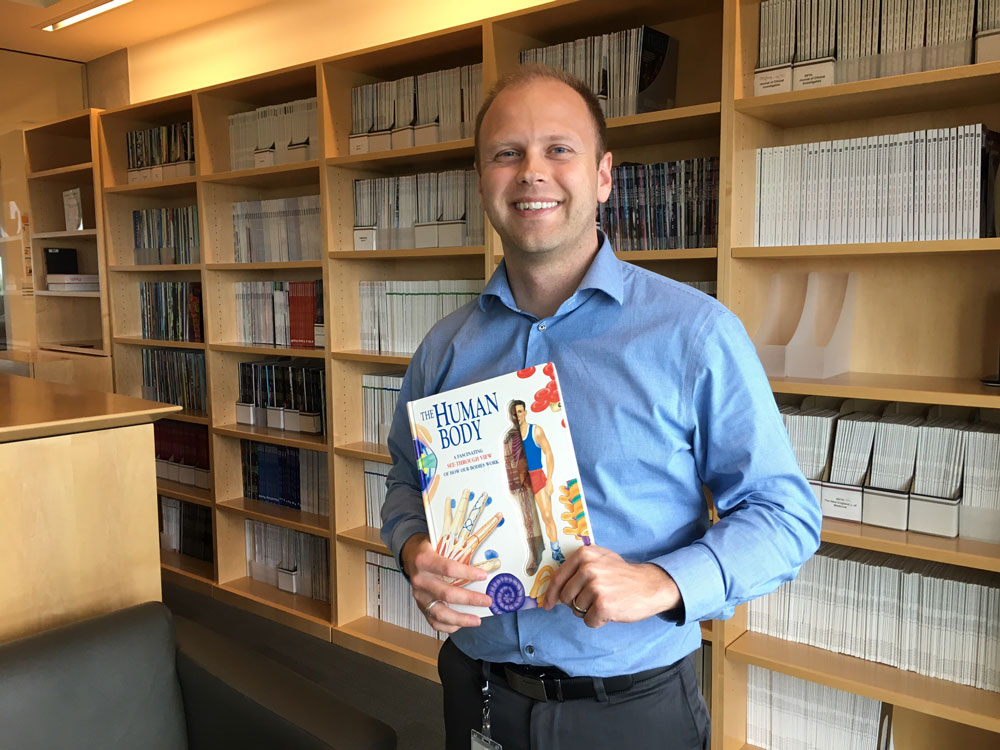We recently caught up with Jacob Brown, PhD, a past Fishman Award winner, whose research career is really taking off. Jacob studies the molecular mechanisms by which the gut and brain communicate to regulate food intake and energy expenditure. Working in the laboratory of Dr. Julio Ayala in the Center for Metabolic Origins of Disease, Jacob hopes to identify brain regions and signaling events that can be used to develop more effective obesity therapies.
You were recently awarded an NIH fellowship grant. How did working at SBP contribute to the award?
While at SBP, I’ve collected intriguing preliminary data that I used to form the hypotheses and specific aims. Julio’s guidance helped to evolve my grant writing skills and my application was bolstered by incorporating the collaborative expertise of three other SBP faculty members.
Strong grant writing skills are essential for research professionals. To what do you attribute your success?
Practice, practice, practice. I wrote seven grant applications within one and a half years of arriving at SBP. The process of writing and incorporating feedback from reviewers and lab members helped to hone my grantsmanship. This award has given me more confidence as I go forward to seek independent funding for my own lab.
What research questions are you investigating?
How do gut-derived hormones and fats cause satiety and weight loss? I am investigating a specific protein and lipid generated by the gut after eating sugar and fat to determine how they reduce food intake and body weight. While one engages the brain and the other engages receptors outside of the brain, I am investigating whether they can work together to form a greater anti-obesity response. The overall goal is to leverage the discoveries of this project to improve current obesity therapies.
Why did you choose science as a career?
As the youngest of seven kids, I was exposed to the hobbies and careers of my older siblings. These were diverse since my parents encouraged us to try out different things. They gave me a physiology picture book when I was in fourth grade. At the time I wanted to either be a rock star or doctor. In college, I chose to major in physiology and was drawn to lab research.
What advice can you offer to recent post-docs?
Choosing your principle investigator is one of the most critical decisions. Find someone who is approachable and maintain open discussions with your PI about presenting your research at conferences, writing grants and developing a well-rounded set of professional skills. Managing the grant writing process has been key in my development because it helped me think about the science from multiple angles and patch potential gaps before the reviewer sees them. I owe a lot to Dr. Ayala’s mentoring style.
What fascinates you most about your research?
Where do I start? What interests me most is how our body’s tissues communicate with each other and how this communication regulates basic physiology in health and in disease states like obesity. It is incredible that one molecule can change a behavior as complex as eating. Eating behavior is influenced by more than just access to food; it’s also influenced by motivation, memories, mood and the reward the food represents. With my two daughters always on my mind, my main motivation is to help prevent the obesity epidemic from continuing into the next generations.
